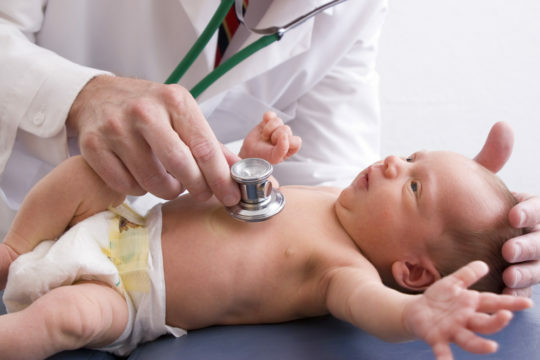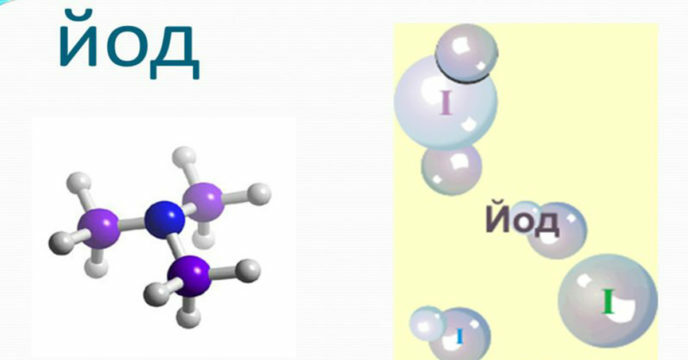Hyperthyroidism is a deviation in the thyroid gland functioning when too much hormones are released into the blood. Enter this state of the human body at any age, but children's most dangerous to health and the further normal functioning of all organs. The reason is the incompleteness of the development of children's organs and intensive growth, exacerbating the problem, making the harm done more substantial.

Causes of
Depending on the age of the children and their state of health, the causes of malfunction of the thyroid gland may be very different. The most common:
- In the tissues of the organ, follicular cells act excessively active, which leads to an excessively high production of specific hormones T3 and T4.Taking out the hormones produced in the blood, the iron destroys its cells.
- If a child was treated with iodine preparations, or synthetic hormones were used, their inaccurate dosage could provoke hyperthyroidism in children.
- With excessive stimulation with pituitary hormones. Their normal amount regulates the functioning of the gland, including its growth, and excessive forces it to overload, work hard, while the surplus and hormones of the thyroid gland enter the bloodstream, and it itself increases in size.
- In some cases, the problem may not be the work of an individual organ, but of the whole organism. There are severe cases when the body perceives the thyroid as a kind of alien organ and attacks with antibodies. The thyroid gland, in turn, produces an excessive amount of hormones, believing that it does so at the request of the body. There is a severe disease - a diffuse toxic goiter. At girls it meets in 6 times more often, in comparison with boys.
Separately, the appearance of hyperthyroidism in a newborn child should be considered. Pathology is associated with the process of transfer of activators of the thyroid gland, which occurs during childbirth from mother to child. If the woman giving birth during pregnancy has had manifestations of hyperthyroidism, then with a high probability, the problem will manifest itself in the baby. Usually during 3 months the problem passes independently, but there are cases more long, up to several years. Statistics indicate an equally frequent manifestation, regardless of gender, but indicates more frequent cases after premature birth. Among the symptoms - increased excitability, hyperactivity, bulging eyes. Not necessarily, but often a frequent pulse, high fever.

Regardless of the reasons, it is extremely important to timely regulate the thyroid gland and prevent pathological changes in other systems of the child's organism under the damaging effect of excessive amounts of hormones.
Manifestations of
Symptoms of the disease can be traced to the behavior of the child, the work of many systems of his body, and some of them seriously complicate the communication of the child in the team, not to mention the general state of health, work capacity. Sometimes it is a threat to life, when urgent medical care is needed, right up to resuscitation.
- Neurological
These signs are the most vivid and easily identifiable. The main thing is to be attentive to the behavior of children. To frequent manifestations is:
- insomnia;
- tremor, when the child's fingers are trembling with arms outstretched;
- in standing position can tremble all, or only the eyelids;
- irritability and excitement.
Sometimes parents think their child is hyperactive, but perhaps the reason lies in the disease.
- From the cardiovascular system
There are quite specific signs that indicate a poor state of children's health:
- pulse can increase dramatically for no apparent reason, and for a long time is at a frequency of 160-180 beats per minute;
- high blood pressure, which is difficult to reduce;
- severe shortness of breath with minor physical exertion;
- increased heart rate;
- sometimes on the neck you can visibly observe the pulsation of blood vessels.

These symptoms indicate an overload of the body, there is a possibility of failure of the part of the system.
- From the digestive system
Disorders are formed gradually, but are persistent and dangerous:
- persistent diarrhea, which leads to dehydration of the body, a general decrease in immunity and inability to replenish the stores of nutrients;
- increased appetite;
- weight loss.
- Appearance of the eyes
Such signs are a clear indication of the presence of hyperthyroidism:
- eyelids are wide open, even with laughter or expression of other emotions the situation remains unchanged;
- the child seldom blinks;
- unnatural eye shine;
- on the eyelids appears pigmentation in the form of darkening;
- when you try to close your eyes, your eyelids tremble;
- pupils widen unevenly;
- eyelids visually look swollen.
It is important to pay attention to the unnatural behavior or condition of the child on time, because there is an extremely dangerous symptom of the disease - thyrotoxic crisis. During it, the state of children is extremely difficult, urgent hospitalization and the adoption of resuscitative measures are needed.
Diagnosis
Depending on the development of the child, the stage of the disease and the reasons for its appearance, the symptoms may be blurred or suggest another disease. Therefore, it is important to contact a specialist and undergo the necessary professional examination.

The endocrinologist diagnoses the disease. He interviews the patient and parents to collect anamnesis, carefully examines the child in person, revealing changes in the thyroid gland to the touch to determine changes in size. But without laboratory research is indispensable. It is necessary to conduct a study:
- blood and urine;
- immunological;
- on the level of pituitary hormones;
- on the level of thyroid hormones in the body of a child.
If necessary( but not necessary), ultrasound of the thyroid gland and special tests are prescribed.
Methods of treatment
Modern medicine allows to produce treatment at once by three methods, and the operation does not always become necessary. The characteristics of a child's organism, more sensitive and vulnerable than fully formed, are taken into account.
- Medicinal
The main difficulty of drug therapy in the correct dosage of medications. Treatment is done by thyreostatics, which seriously affect the work of the whole organism. It is necessary to take into account not only the age and weight of the patient, but also the severity of the child's condition, how long the illness presumably lasts. In addition, there are individual features of drug tolerance.

In addition to the exact dosage, the doctor recommends the duration of treatment, appoints repeated studies and consultations. It is very important to strictly follow all recommendations. Medicines have, among side effects, the ability to suppress bone marrow and impair hemopoiesis. Regular monitoring of the child's condition will help prevent pathological changes.
If the condition has stabilized, this is not an excuse for relaxation, inaccurate compliance with recommendations, or lack of consultation. A neglected disease can be much worse than the primary variant.
- Surgical
A significant portion of the gland is removed so that the remaining part can allocate exactly the amount of hormones that the child needs. It is used only in extreme cases, because it is an irreversible intervention. Usually, indications are violations of respiratory functions, inability to eat, poor response of the patient to medications, hematopoietic disorders, or too strong tissue activity in the direction of growth.
- Treatment with radioactive iodine
Because this method is dangerous, it is used only after the execution of 16 years.
Most often, the disease in children is temporary and non-hazardous, appears due to rapid growth and changes in the work of internal organs for this case. Enough non-permanent correction with the help of medication and changing the load, so that the stage of recovery begins. Exceptions are genetic predisposition.


